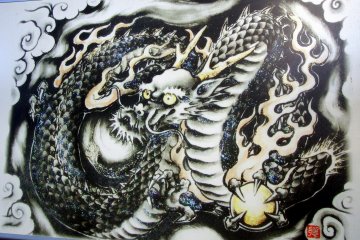
Keya Kurotatsu Shrine in Fukui
Takako SakamotoKeya Kurotatsu Shrine in Fukui city is one of the four ancient guardian shrines of Japan, and also a Power Spot to dispel evil spirits!

Keya Kurotatsu Shrine (毛谷黒龍神社), at the eastern foot of Mount Asuwa, was built to enshrine the deity of the Kuzuryu River.
Ten minutes by car from Fukui Station, to the east of Asuwayama.

Keya Kurotatsu Shrine in Fukui city is one of the four ancient guardian shrines of Japan, and also a Power Spot to dispel evil spirits!
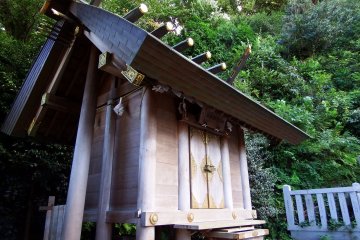
Nishinomiya Ebisu Shrine and Ishiwatari Hachiman Shrine in grounds of Keya Kurotatsu Jinja in Fukui city. Although they are small, their beautiful architecture will fascinate you!
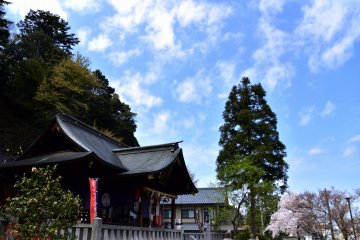
Beautiful Kurotatsu Shrine with falling cherry blossoms at the end of Sakura season and photos of inside the prayer hall.

In Fukui in central Japan, APA Hotel Katamachi is business hotel that makes up for its distance from the station by being comfortable and very affordable.

Fukui—a peaceful, nature-rich prefecture on Japan’s northern coast—is quickly becoming a favorite for travelers seeking an authentic, quieter side of Japan.
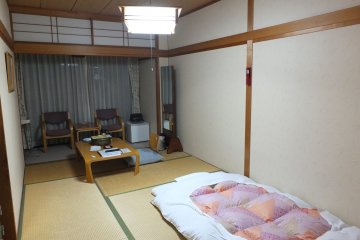
A nice local old-fashioned inn/hotel in the pretty rural town of Sabae in Fukui Prefecture.
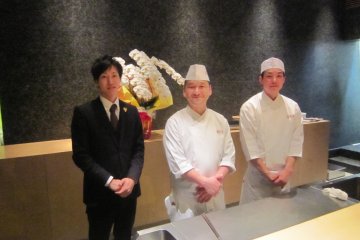
'Kaika-Tei sou・an', the annex of the old and established Japanese restaurant 'Kaika-Tei' in Fukui. This annexed restaurant was designed by the famous architect, Mr. Kengo Kuma, who renovated the recently re-opened Kabuki-za in Ginza, Tokyo. You can enjoy original, creative Japanese cuisine cooked by a master chef here.

Close to the main station in Fukui in central Japan, Tomiya is a traditional Japanese izakaya (dining bar), serving up inexpensive food and drinks.

Miyazaki Chicken Restaurant/Bar, 'Kidoriya' in Katamachi, Fukui. Sent directly from Miyazaki, the chicken called 'Jitokko' is served in many ways, broiled, boiled, grilled, etc. You can also enjoy various menu items cooked with Fukui's fresh fish & vegetables.
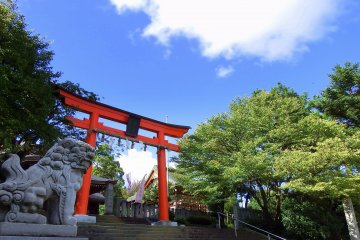
Fujishima Shrine is a Shinto shrine located in the city of Fukui, Japan. In the former Modern system of ranked Shinto Shrines, it was a special shrine. Its main festival is held annually on August 25. [Wikipedia]
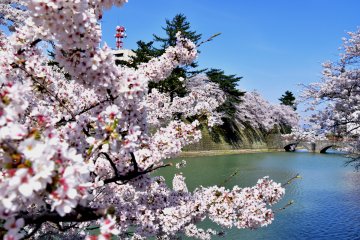
Fukui Castle is a flatland-style castle located in what is now the city of Fukui, Fukui Prefecture, Japan. During the Edo period, it was the headquarters of a branch of the Matsudaira clan, who were hereditary daimyō of Fukui domain under the Tokugawa shogunate. Wikipedia
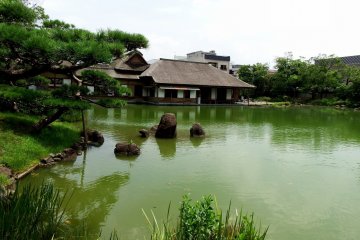
Yokokan Garden (養浩館庭園, Yōkōkan Teien) is a traditional Japanese garden established in the Edo period (1603 - 1868). The Yokokan villa inside the garden was a former residence by the Fukui Matsudaira Clan.